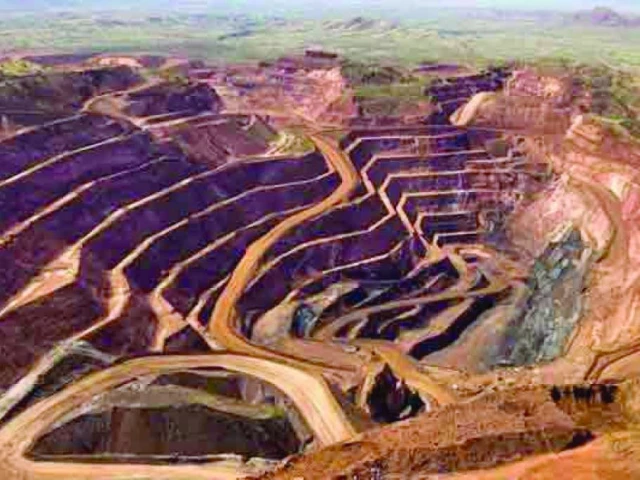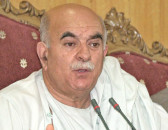IMF expands talks scope to Reko Diq
Finance ministry says project status to be shared with Fund

The International Monetary Fund (IMF) has brought the multibillion-dollar Reko Diq mining project under its purview, asking the government to provide a detailed briefing on its status. The move expands the Fund's oversight from balance-of-payments support to scrutiny of major projects in Pakistan.
Sources said the briefing, initially scheduled for this week, has now been shifted to next week. The IMF team, in Islamabad since September 25, has been holding meetings with various stakeholders as part of the second review of the $7 billion bailout programme, which is expected to unlock a $1 billion tranche. Under its climate facility, Pakistan is also due to receive an additional $220 million.
The Reko Diq project is operated by the Reko Diq Mining Company (RDMC), in which Canada's Barrick Gold holds a 50% stake, while the federal and Balochistan governments share the remaining half equally.
Officials confirmed that the IMF sought the briefing just as the project is reaching financial close, backed by around $3.5 billion in loans committed by international lenders. The US Exim Bank has emerged as one of the largest financiers, with commitments ranging between $700 million and $1.2 billion.
The Express Tribune had requested the Ministry of Finance to comment on the relevance of the Reko Diq project with the bailout programme and the merits of giving a briefing to the IMF on the project.
Finance Ministry spokesman Qumar Abbasi said that the government of Pakistan's talks with the IMF cover all areas of economic activity that affect the national economy.
Abbasi said that it was important to share information on projects of such scale with development partners, so that the same is factored in their assessment of Pakistan's economy.
"During the ongoing discussions, the latest status of the Reko Diq project will also be shared with the Fund, as it is a major mining project which is expected to make significant contributions, not only to the mineral sector but also to the economy at large," said Abbasi.
Traditionally, the role of the IMF is to provide the balance of payments support to countries facing financial distress. It is unusual that the IMF will scrutinize a project, which is operated by a company rather than the government.
Abbasi further said that the project represents the largest foreign direct investment (FDI) in a single project in Pakistan and its financing involves major international institutions and signals confidence from global investors.
The project will also have a positive impact on the socioeconomic development of Balochistan. Once completed the project would contribute significantly to the economy and substantially strengthen Pakistan's foreign exchange reserves, said the spokesman.
The RDMC was in the process of achieving the financial close and a major announcement was expected very soon. Last month, the federal cabinet approved to increase total project cost for Phase-I to $7.72 billion. This includes $5.8 billion in capital expenditure. This is the second revision in six months. In March this year, the ECC had approved raising the cost to $6.8 billion.
Two-and-a-half years ago, the project had been estimated at $4.3 billion. It is now up 79% or $3.4 billion before production even begins.
Phase II of the project is due in 2034 at an additional cost of $3.3 billion. This will raise capacity to 90 million tonnes per annum (Mtpa). With this, the total project cost will touch nearly $10 billion.
The project is of global interest, attracting both the US and China. Its net cash flow over 37 years is projected at $70 billion. That is almost 10 times Pakistan's current foreign exchange reserves. The project's technical report says that production will begin by the end-2028. The mine will initially yield 200,000 tonnes of copper a year in Phase-I at a cost of $5.7 billion. Completion of this first phase is expected in 2029.






















COMMENTS
Comments are moderated and generally will be posted if they are on-topic and not abusive.
For more information, please see our Comments FAQ